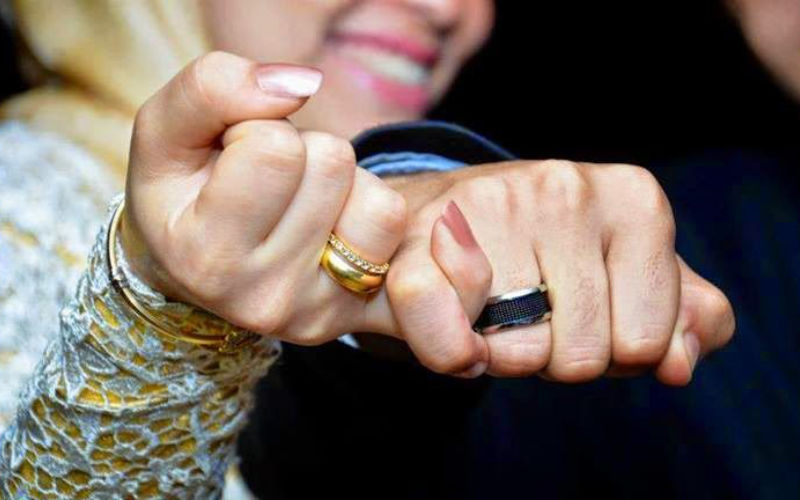TikTok, the new wedding mosque in Morocco?

Considered a religious figure, a scholar who guides, teaches, and sometimes celebrates weddings in accordance with the rules of Islam, the "fkih" is reinventing himself, launching into the trend of virtual weddings and playing the role of matchmaker on TikTok.
The "fkih" do not intend to live on the margins of society. They too are getting involved in the trend of virtual weddings. TikTok live streams of a man presenting himself as a "fkih" are a perfect illustration of this. This man acts as a matchmaker between strangers seeking to get married. How does he proceed? "A woman expresses her wish to get married, a man as well, and both are invited to participate in a live where they speak to each other for the first time. The fkih supervises the discussion, ensures that it remains respectful and "serious", and sometimes concludes by proposing a "fatiha"," says Le Matin, adding that some couples exchange phone numbers after the live. Others announce a few days later that they are engaged.
The matchmaking of marriage applicants has now moved from the private sphere to the public sphere. The conditions of marriage in Morocco have evolved over time "from a collective family act to an individual approach", reflecting deep social changes," notes Chakib Guessous, a socio-anthropologist, social science researcher and Moroccan writer. "Today, many people get married later than before, unlike previous generations where marriage occurred as early as 18 or 19 years old, sometimes even earlier," he explains, recalling the latest figures from the HCP on definitive celibacy, which has increased in Morocco to 9.4% in 2024 compared to 5.9% in 2014.
According to the sociologist, this evolution is explained by the lack of family support in finding a partner, as well as a social context where traditional marriages with the blessing of families are becoming rarer. Some young people then seek to satisfy their emotional and sexual needs within a religious framework, he adds. Thus, they embark on the search for marriage offers that ensure them religious legitimacy, with the blessing of an imam or a "fkih", while respecting the limits of Islamic legality. This phenomenon illustrates a trend towards individual marriages motivated as much by religious imperatives as by unmet personal needs, notes the author of the book "Marriage and Concubinage in Arab Countries".
This transition of the matchmaking of marriage applicants from the private to the public sphere is diversely appreciated. For some, it is a modern and transparent way of responding to a social reality. Often left to their own devices in their quest for a partner, young people struggle to find safe frameworks to meet and move away from dating apps. The role of the "fkih" is therefore perceived as a "halal" solution, "without isolation or taboo, but live." Others, on the other hand, denounce a "commercialization of marriage." For the sociologist, "it is indeed a commercialization, if certain actors, like this fkih, receive money to organize these meetings, like TikTok revenues, views, gifts,..."
Related Articles
-

Morocco Bolsters Military with $120 Million Israeli Drone Deal, Expanding 1,000km Strike Range
1 September 2025
-

Mother of Three Brutally Tortured for 8 Days in Horrific Kidnapping Near Témara
1 September 2025
-

Border Police Crack Down on Thriving Stolen Car Trade to Morocco
1 September 2025
-

Vacation Nightmare: Dutch Teen’s Seizure at Moroccan Airport Leads to Harrowing Medical Ordeal
31 August 2025
-

Morocco’s Intelligence Services: The Unsung Heroes in Global Counter-Terrorism and Drug Busts
31 August 2025